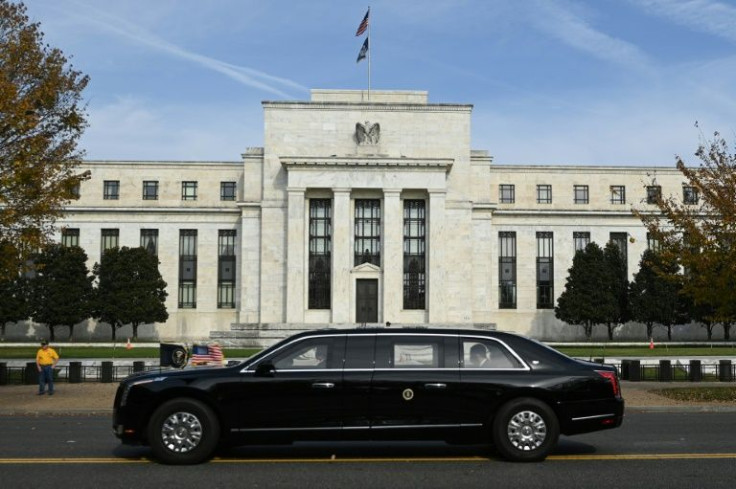Fed Should Quicken Stimulus Pullback Due To Inflation: Official
The sharp rise in US inflation even as the labor market rapidly improves means the Federal Reserve should remove stimulus from the economy more quickly, a central bank official said Friday.
The Fed this month began slowing the pace of bond purchases it started early in the pandemic to provide liquidity to the economy, but has expressed caution over when it will increase interest rates even as consumer prices hit a 30-year high.
Fed board member Christopher Waller said "the rapid improvement in the labor market and the deteriorating inflation data have pushed me towards favoring a faster pace of tapering and a more rapid removal of accommodation in 2022."
As the world's largest economy has made a rapid recovery from the deepest downturn on record, prices have soared due to global supply bottlenecks and shortages, as well as labor constraints.
The annual consumer price index in October hit 6.2 percent -- its highest level in more than three decades and well beyond the Fed's two percent goal.
Prices have "escalated substantially this year," Waller said, and "despite the highest wage gains in years, inflation this year has wiped out any real wage increase for the average worker."

"High inflation is painful to Americans who have little choice about the goods and services they buy for everyday living," he said in a prepared speech.
His comments were the strongest yet from a top central banker, as Fed Chair Jerome Powell has repeatedly said that while inflation is higher than expected, most of the factors driving it are transitory.
But Waller noted that "price pressures are no longer concentrated in a few categories, they appear to have broadened," and it is "very concerning" that consumer surveys show the public is worried the rate will stay above two percent.
The central bank slashed the benchmark borrowing rate to zero in March 2020 to help ward off a deeper economic crisis, and has said it will not raise rates until the economy is at maximum employment and inflation is on track to stay at or a bit above two percent.
Waller said the criteria for inflation to hold at or above two percent has been met, and the economy "making great strides towards achieving the employment leg of our mandate."
The Fed this month started reducing the pace of its monthly purchases of Treasury securities and mortgage-backed bonds, but has said it could cut back more quickly.
© Copyright AFP {{Year}}. All rights reserved.





















